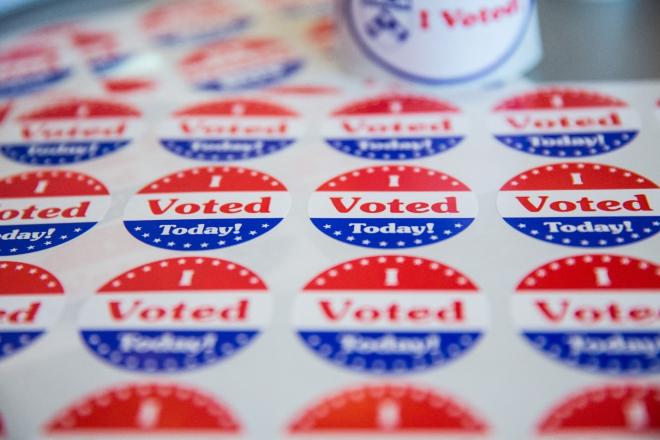Well-being as a driver for climate transition: From individual action to policy change
In recent work, part of the Public Deliberation on Climate Transitions and Well-Being research community, supported by the Environmental Innovations Initiative, Quinn, Kimbrough, and colleagues are seeking community input to understand how to enhance collective action on climate change through public deliberations.

By Xime Trujillo
“We’re not climate experts!”
So insist participants in a study led by Rand Quinn, associate professor at the Graduate School of Education, and Steve Kimbrough, professor at the Wharton School. At the heart of their investigation is the tenet that one needn’t be a climate expert to understand how certain policies may affect day-to-day quality of life.
In recent work, part of the Public Deliberation on Climate Transitions and Well-Being research community, supported by the Environmental Innovations Initiative, Quinn, Kimbrough, and colleagues are seeking the input of “people from all walks of life”—not climate experts—to understand how to enhance collective action on climate change through public deliberations.
Enhancing collective action
Last fall, Quinn and Kimbrough, alongside four students, Keri Davenport, Rehana Odendaal, Chen Wang, and Riya Anand, initiated a study on how climate transition policies intersect with well-being. Engaging with the community of Narberth, a neighborhood in the suburbs west of Philadelphia, through a pilot discussion with eight participants, they kicked off a study about the power of collective action for sustainable change. The lessons learned during this first demonstration will inform future sessions in neighborhoods in Philadelphia.
During a 1.5-hour session, the Penn team facilitated a discussion on local energy and sustainability policies that support the green transition to net-zero greenhouse gas emissions (GHG), such as vehicle electrification and residential energy efficiency. In a public deliberation such as this one, assessing climate policies is part of a dynamic conversation among participants and facilitators. “This approach allows us to probe rather than survey participants, so it is possible to infer concerns and organically identify co-benefits”, notes Kimbrough.
The Penn team documented participants’ evaluations of 16 policies, recorded votes on the various proposals, and reviewed the results. Instead of a cost/benefit analysis, the discussion prioritized human well-being, uncovering valuable insights into the co-benefits or side effects that arise with policies directed primarily at reducing GHG. For example, replacing coal and natural gas with wind and solar to generate electricity has the co-benefit of reducing air pollution. As a consequence, significant public health benefits ensue, which may well serve to justify the expenditure for the conversion. This research community aims to search for combinations of climate policies and co-benefits, which can be positive or negative, depending on the context and who will benefit the most. Finding such combinations will be invaluable for crafting transition policies.
“This approach allows us to probe rather than survey participants, so it is possible to infer concerns and organically identify co-benefits” -Steven Kimbrough, Professor of Operations, Information and Decisions at the Wharton School
Quinn highlights the crucial role of town halls, public deliberations, and other civic platforms in linking individual actions to broader policy impacts. “It helps find the connection between individual level deeds and well-being and then policy,” Quinn says. One unexpected insight raised by the community discussion was the value of time as a resource. The lengthy charging time for electric vehicles, for instance, was cited as a major influence on public acceptance of sustainability policies. This finding, the researchers say, underscores the importance of considering well-being along with practicalities, like convenience, in policy development.

A shift to well-being and life quality
Moving forward, Quinn and Kimbrough envision a plan to refine their protocol and explore new methods for analyzing climate and sustainability policies in civic platforms. They note that ensuring access to information is crucial in supporting the climate transition. Without it, they say, there’s a risk of prioritizing individual interest over the collective needs and well-being of families, friends, and communities.
Their ultimate goal is to leverage community power in responding to climate transition challenges. “This is a two-way process with opportunities for communities and policy makers,” says Quinn. “These discussions are channels to express priorities in a direct manner to decision makers.”
“This is a two-way process with opportunities for communities and policy makers.”-Rand Quinn, Associate Professor at the Graduate School of Education.